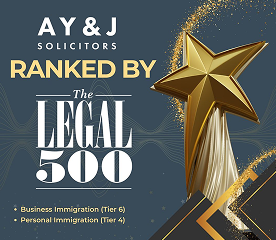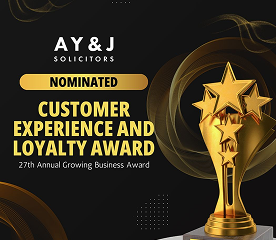Sole Representative Visa Extension
If you are a Representative of an Overseas Business visa holder (often referred to as the Sole Representative visa) currently in the UK, it is important that you apply for an extension before your initial 3-year period comes to an end. As long as you meet the eligibility requirements, you will be able to renew your Representative of an Overseas Business visa for 2 years, at which point you can apply for indefinite leave to remain (ILR). In this article, we will explain the eligibility requirements for a Representative of an Overseas Business visa, the extension process, and some reasons for refusal to bear in mind to ensure a positive outcome.
What is the Representative of an Overseas Business visa?
The Representative of an Overseas Business visa originally served two purposes; 1) to enable representatives of an overseas company to come to the UK to establish a branch or subsidiary, and 2) for overseas newspaper, news agency, or broadcasting organisation staff posted on a long-term assignment to the UK. The Representative of an Overseas Business visa is still open to new applications but only for overseas newspaper, news agency, or broadcasting organisation staff posted on a long-term assignment to the UK. Representatives who wish to come to the UK to set up the first branch or subsidiary of an overseas business now need to apply under the UK Expansion Worker visa (Global Business Mobility) scheme.
The Representative of an Overseas Business visa allows holders to remain in the UK for an initial period of 3 years. After 3 years, the visa can be extended for a maximum of 2 years. After 5 years in the UK on a Representative of an Overseas Business visa, it is then possible to apply for permanent settlement (ILR).
What are the eligibility requirements for a Sole Representative visa extension?
To make a successful application for a Sole Representative visa extension, you must be able to demonstrate to the Home Office that:
- You have now established and registered the first branch or subsidiary of the overseas business that you represent
- You are still employed full-time by your overseas employer
- You continue to supervise the registered branch or wholly-owned subsidiary that you have established, and
- You are still required by your employer to continue in your role as their Representative in the UK.
- The principal place of business (i.e. head office) is still outside of the UK, it must still be actively trading, and it must still be in the same area of business as the UK entity.
Another key consideration is that in order to make a successful Sole Representative visa extension application, you must not be a majority shareholder of the overseas business. In addition, you must not hold any other form of employment in the UK.
How to apply for a Sole Representative visa extension
The application process for a Sole Representative visa extension is completed online on the Home Office website. To apply for your extension, you will need to:
- Complete and submit the online application form – ‘Application to extend stay in the UK: FLR(IR)’ – before your existing visa expires
- Pay the application fee of:
- £719 – if you are applying from outside of the UK
- £827 – if you are applying from within the UK
- Pay the healthcare surcharge of £624 for each year
- Make an appointment with your nearest UK Visa and Citizenship Application Services (UKVCAS) service point and have your fingerprints scanned and your photo taken (your biometrics).
- Upload your documents (or have them scanned and uploaded on your behalf when you attend your UKVCAS appointment).
The documents you will need to supply to support your Sole Representative visa extension will depend on your exact circumstances but may include the following:
- Details of the UK business’s activities showing that you have successfully generated business in the UK for your employer since you were granted your visa (i.e. financial accounts, invoices, and correspondence from UK organisations with whom you have worked while setting up the UK entity).
- Companies House registration certificate proving that you have established a UK branch, or a certificate of incorporation providing you have established a UK subsidiary
- Proof that the UK entity is wholly owned by the overseas business you represent
- A letter from your overseas employer confirming that they wish to continue employing you to be your Representative in the same role in the UK
- Evidence of the salary paid by your employer in the 12-month period immediately before the date of your application and details of the remuneration package you have received
Alternatively, if you are applying for an extension of your Sole Representative visa under the newspaper, news agency or broadcast category, you will need to provide a letter from your overseas employer confirming that you are still required in the same role and details of your salary/remuneration.
Once you have submitted your application, payment, and documents and attended the UKVCAS appointment, you can expect to receive a decision within 8 weeks if you are using the standard processing service. You may be able to pay an additional fee for a faster decision.
Can my dependants apply for a visa extension?
If your dependant partner and children are currently in the UK with you, they can also apply to extend their dependant family member visas. This can be done at the same time that you apply for your visa and must be done before their visas expire.
What are some of the common reasons for the refusal of a Sole Representative visa extension?
A Sole Representative visa extension may be refused for several reasons related to suitability (e.g. criminality), validity (i.e. if the correct application process has not been followed), and eligibility. Some of the possible reasons for refusal due to ineligibility include the following:
- The principal place of business is no longer outside the UK
- You are not supervising a branch or subsidiary trading in the same type of business as the overseas business.
- You have not established a branch or wholly owned subsidiary in accordance with your previous permission.
- You do not have the authority to make decisions
- You have a majority stake in the overseas business
- You are not in charge of the branch or wholly owned subsidiary you established, or
- You are no longer required for the employment in question





































































